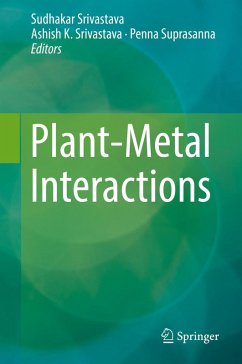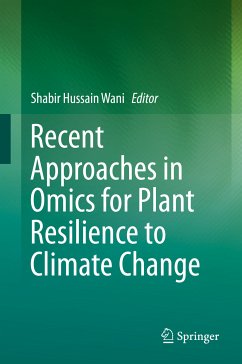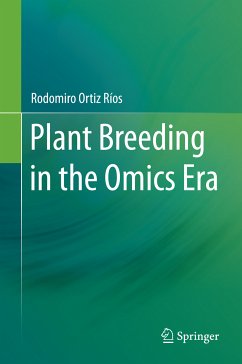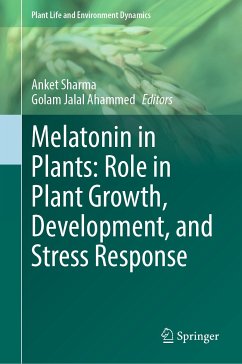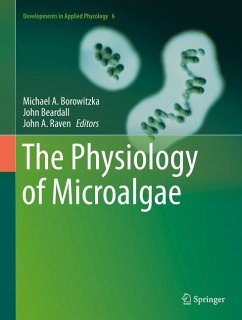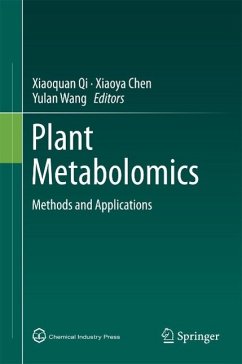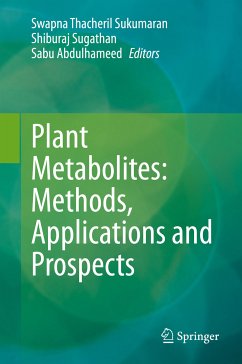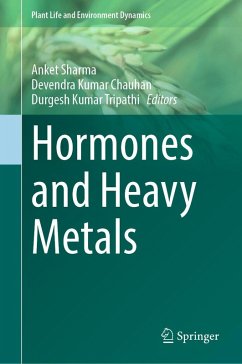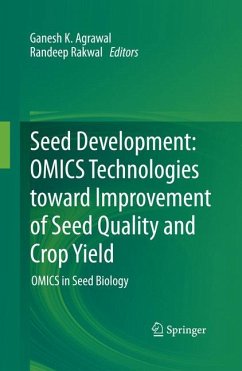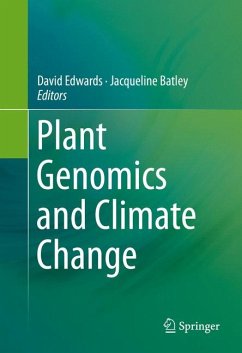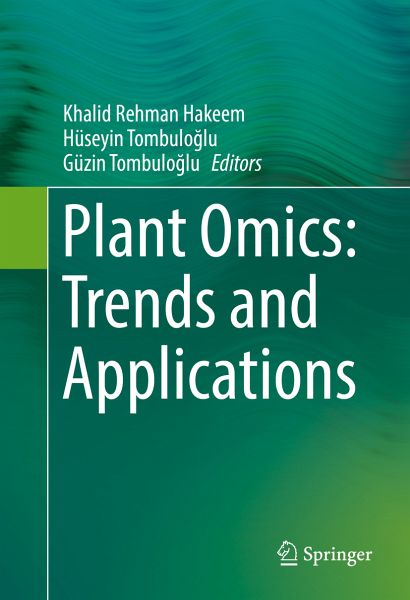
Plant Omics: Trends and Applications (eBook, PDF)
Versandkostenfrei!
Sofort per Download lieferbar
160,95 €
inkl. MwSt.
Weitere Ausgaben:

PAYBACK Punkte
80 °P sammeln!
To comprehend the organizational principle of cellular functions at diff erent levels, an integrative approach with large-scale experiments, the so-called 'omics' data including genomics, transcriptomics, proteomics, and metabolomics, is needed. Omics aims at the collective characterization and quantifi cation of pools of biological molecules that translate into the structure, function, and dynamics of an organism or organisms. Currently, omics is an essential tool to understand the molecular systems that underlie various plant functions. Furthermore, in several plant species, the development ...
To comprehend the organizational principle of cellular functions at diff erent levels, an integrative approach with large-scale experiments, the so-called 'omics' data including genomics, transcriptomics, proteomics, and metabolomics, is needed. Omics aims at the collective characterization and quantifi cation of pools of biological molecules that translate into the structure, function, and dynamics of an organism or organisms. Currently, omics is an essential tool to understand the molecular systems that underlie various plant functions. Furthermore, in several plant species, the development of omics
resources has progressed to address the particular biological properties of individual species. Integration of knowledge from omics-based research is an emerging issue as researchers seek to identify significance, gain biological insights and promote translational research. From these perspectives, we intend to provide the emerging aspects of plant systems research based on omics and bioinformatics analyses together with their associated resources and technological advances. Th e present book covers a wide range of omics topics, and discusses the latest trends and application area of plant sciences. In this volume, we have highlighted the working solutions as well as open problems and future challenges in plant omics studies. We believe that this book will initiate and introduce readers to state-of-the-art developments and trends in omics-driven research.
Dieser Download kann aus rechtlichen Gründen nur mit Rechnungsadresse in A, B, BG, CY, CZ, D, DK, EW, E, FIN, F, GR, HR, H, IRL, I, LT, L, LR, M, NL, PL, P, R, S, SLO, SK ausgeliefert werden.



